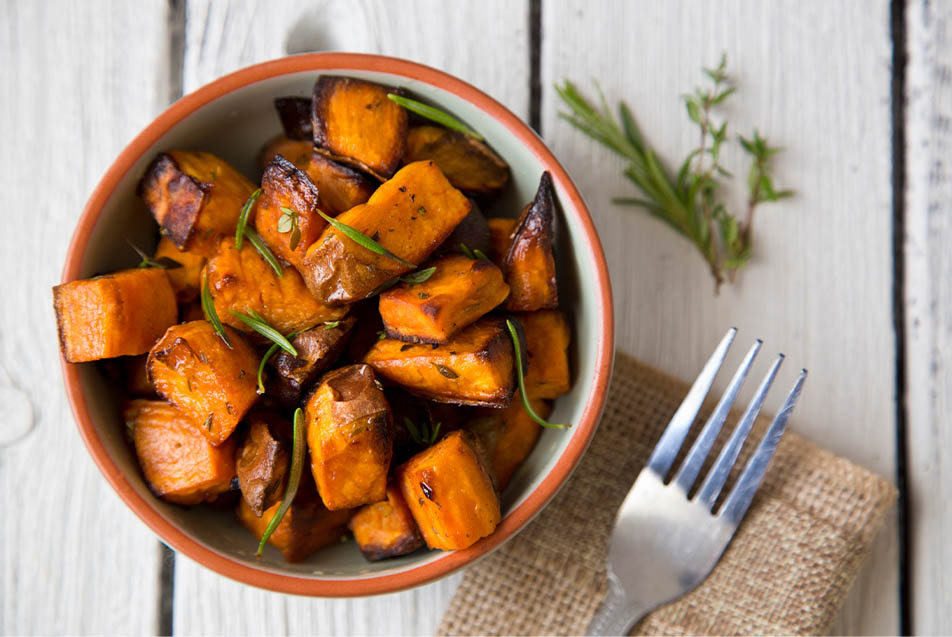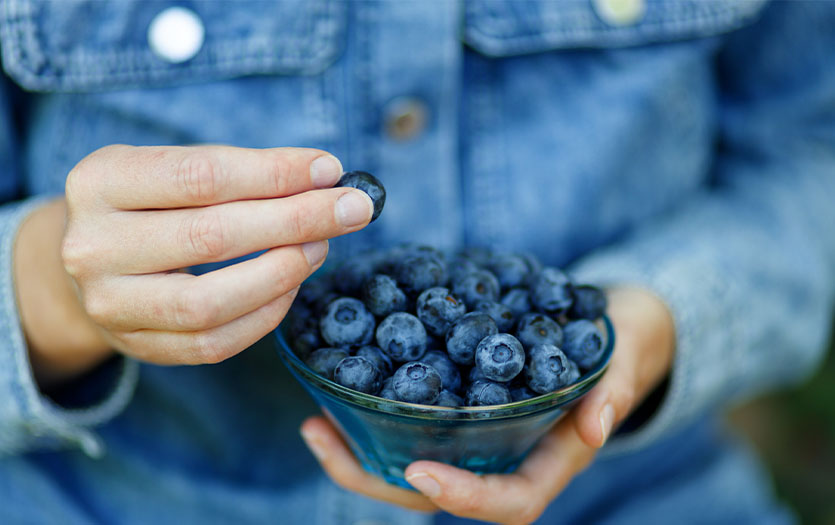
This post was written by Briana Aspy, physician assistant, PPG – Integrative Medicine.
Over the last several months, it has become easy to feel fearful and nervous about our health and risk of illness. We are bombarded daily with news and statistics that can keep us stressed out and on edge. Now more than ever, it is important to remember that we are not helpless and many well-known lifestyle modifications can go a long way to support our body’s immune system.
So, let’s dive into it and answer these key questions: How can you empower your immune system? Which foods nourish the body with the fuel it needs to deal with an infection? What foods should you avoid?
Avoid the “white hazards”
The first step to help your immune system is to limit highly inflammatory foods. The first area to focus on is sugar. Did you know that excessive sugar consumption can reduce the immune system’s ability to fight infections? Sugar intake starts an inflammatory cascade by increasing insulin levels, which is why an individual's sugar intake should be limited to 4-6 grams of added sugars per meal or 24 grams per day. For many, this means pulling back on processed foods, sweet treats, bread, pasta, rice and other baked goods. From ketchup to bread, it’s crucial that you keep an eye on the processed foods you are consuming. Unfortunately, food manufacturers sneak sugar into most products and this hidden sugar intake can start to add up. The solution? Try avoiding processed foods whenever possible and fill up on real, whole foods that provide complex carbohydrates like beans, lentils, sweet potatoes, winter squash and fruits. These options are naturally lower in carbs and sugar while also being higher in fiber and nutrients.
Eat the rainbow
At Integrative Medicine, we teach our clients to fill 50-75% of their plate with non-starchy vegetables. Preferably these vegetables would be a wide variety of colors. Each color has a unique set of phytonutrients that will help support the body. For instance, red and orange peppers have higher levels of vitamin C, beta-carotene and bioflavonoids. All of which assist the immune system. While green foods like avocados, broccoli and limes help decrease inflammation, cell protection and brain health. Let’s take a look at a few other immune-boosting nutrients and where to find them:
- Vitamin C: Can be found in citrus, bell peppers, strawberries, guava, Brussel sprouts, broccoli, tomato, kale and mango. Vitamin C is also great for boosting white blood cells.
- Vitamin A (through beta carotene): This can be found in sweet potatoes, carrots, leafy greens like spinach and kale, cantaloupe and bell peppers. Vitamin A is crucial in the production of white blood cells, which fight viruses and bacteria. It also helps form mucous membranes that line the respiratory tract.
- Zinc: This nutrient can be found in beef, baked beans, pumpkin seeds, spinach, asparagus, lamb, sesame seeds, chickpeas and lentils. Zinc is essential for the normal development and function of the immune system.
Limit the alcohol
While it is tempting to want to relax by pouring yourself a glass of wine when stressed, this will increase inflammation and tax your immune system on several different levels. Instead, turn to healthy mind-body stress reducers such as taking a walk, going on a bike ride, trying a new exercise video or staying hydrated with water and herbal teas. The goal is to consume about half your body weight in water.
Get some sleep and manage your stress
A lack of sleep and chronic stress can increase our stress hormones and inflammation in the body, which can suppress the immune system. If you have felt run down in the past, you may have noticed you are more likely to catch a cold. Make sure you are getting 7-9 hours of sleep per night. Try to make self-care a priority and learn how to manage the stressors in your life. Stress management options could include meditation, mindfulness, breathing techniques, slowing down, having fun, connecting with others, exercise and counseling.
Supplements
Just like the toilet paper mania, it can be easy to go overboard on supplements. There are a lot of different products that offer support to the immune system. It’s best to get the majority of your nutrition from whole foods and use supplements to help support and bridge any gaps. One gap that many people deal with, and can be addressed through supplementation, is vitamin D, which also supports gene expression in the immune system. Our body makes vitamin D when exposed to sunlight, but unfortunately, many of us aren’t exposed to enough sunlight or eat adequate amounts of the few natural food sources containing vitamin D, leaving us deficient. This is especially true as we head into the winter months here in the Midwest. Fortunately, vitamin D3 supplementation can be an effective way to reverse a deficiency. The typical daily dosage for adults is 600-1000 IU per day. We encourage you to have your levels tested to individualize your supplementation needs as some individuals require higher dosing.
References
Gupta C, Prakash D. Phytonutrients as therapeutic agents. J Complement Integr Med. 2014 Sep;11(3):151-69.
Leiherer A, Mündlein A, Drexel H. Phytochemicals and their impact on adipose tissue inflammation and diabetes. Vascul Pharmacol. 2013 Jan;58(1-2):3-20. doi: 10.1016/j.vph.2012.09.002.
Liu RH. Dietary bioactive compounds and their health implications. J Food Sci. 2013 Jun;78 Suppl 1:A18-25. doi: 10.1111/1750-3841.12101.
Kozlowska A, Szostak-Wegierek D. Flavonoids—food sources and health benefits. Rocz Panstw Zakl Hig. 2014;65(2):79-85.
Manganaris GA, Goulas V, Vicente AR, Terry LA. Berry antioxidants: small fruits providing large benefits. J Sci Food Agric. 2014 Mar 30;94(5):825-33. doi: 10.1002/jsfa.6432.
Navarro SL, Schwarz Y, Song X, Wang CY, et al. Cruciferous vegetables have variable effects on biomarkers of systemic inflammation in a randomized controlled trial in healthy young adults. J Nutr. 2014 Nov;144(11):1850-7. doi: 10.3945/jn.114.197434.
Perveen R, Suleria HA, Anjum FM, Butt MS, et al. Tomato (Solanum lycopersicum) carotenoids and lycopenes chemistry; metabolism, absorption, butrition, and allied health claims—A comprehensive review. Crit Rev Food Sci Nutr. 2015 Jun 7;55(7):919-29. doi: 10.1080/10408398.2012.657809



